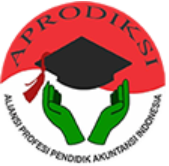DEVELOPMENT OF MIND MAPPING BASED POCKETBOOK AS A LEARNING MEDIA FOR ACCOUNTING SERVICES
DOI:
https://doi.org/10.21831/jpai.v20i1.46289Abstract
The pocket book is small so it's practical. Students can use it to study anytime and anywhere. The concept of mind mapping presented with colour images can stimulate the brain's performance to make it easier to understand the material. This study aims to develop a mind mapping-based pocket book on accounting materials for service companies. The development model used is the 4D Thiagarajan model, which starts from the definition, design, development, and deployment stages. The validity test of six validators who are experts in their fields shows valid results. The material expert's assessment is in the very good category. The media expert's assessment got a fairly good category, and the linguist's assessment got a very good category. The practicality test involving 20 randomly selected respondents showed practical results. Based on the results of the assessment with predetermined criteria, it can be concluded that a pocket book based on mind mapping in service company accounting materials is said to be suitable for use as a learning medium.
Keywords: Development Research; Learning Media; Pocket Book; Mind Mapping; Service Company Accounting
Downloads
Published
How to Cite
Issue
Section
License
Authors who publish with Jurnal Pendidikan Akuntansi Indonesia journal agree to the following terms:
- Authors retain copyright and grant the Jurnal Pendidikan Akuntansi Indonesia journal right of first publication with the work simultaneously licensed under Creative Commons Attribution License (CC BY 4.0) that allows others to share the work with an acknowledgment of the work's authorship and initial publication in this journal.
- Authors can enter into separate, additional contractual arrangements for the non-exclusive distribution of the published version of the work (e.g., post it to an institutional repository or edit it in a book), with an acknowledgment of its initial publication in this journal.
- Authors are permitted and encouraged to post their work online (e.g., in institutional repositories or on their website) before and during the submission process, as it can lead to productive exchanges, as well as earlier and greater citation of published work.










